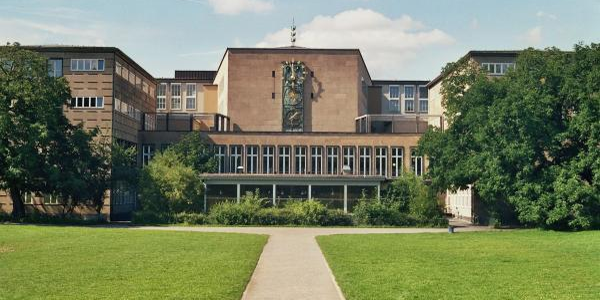
The University of Cologne
The University of Cologne (German Universität zu Köln) is one of the oldest universities in Europe and, with over 44,000 students, the largest university in Germany. The University of Cologne was established in 1388 as the fourth university in the Holy Roman Empire after Charles University of Prague (1348), the University of Vienna (1365) and the Ruprecht Karl University of Heidelberg (1386).
The charter was signed by Pope Urban VI. The university began teaching on January 6, 1389. In 1798, the university was closed by the French, who invaded in 1794. In the course of the 19th century, attempts by the city and citizens to reopen the university failed. Finally in 1919, the Prussian government was convinced. Through a decision by the Cologne City Council, the university was reestablished. On May 19, 1919, then Mayor Konrad Adenauer signed the charter of the modern university.
The university is divided into seven colleges (Fakultäten), which together offer 200 fields of study. The colleges are the School of Management, Economics and Social Sciences, the School of Law, the School of Medicine, with the affiliated university clinic, the School of Philosophy (Humanities), the School of Mathematics and Natural Sciences, the School of Pedagogy and the School of Special Education and Rehabilitation.
Amongst others, Kurt Alder (Nobel Prize in Chemistry), Karl Carstens (president of the Federal Republic of Germany 1979 - 1984), Gustav Walter Heinemann (president of the Federal Republic of Germany 1969 until 1974) and Karolos Papoulias (current president of the Hellenic Republic) were students or professors at the University of Cologne.
The Faculty of Mathematics and Natural Sciences
The Faculty of Mathematics and Natural Sciences hosts the Departments of
- Mathematics & Computer Science
- Physics
- Education in Mathematics
- Natural Science
- Chemistry
- Earth Science
- Biology
The Department Physics hosts the Institutes of Physics I & II, the Institute of Nuclear Physics, and the Institute of Theoretical Physics. Astrophysical research is mainly performed at the Institute of Physics I.